- S.D. Eibar ready for maiden La Liga outing
- SD Eibar stengthen ahead of debut La Liga season
- Can ‘Super Mario’ live up to expectations in Madrid?
- MAN IN THE GROUND – Brentford 0 – 4 Osasuna
- Historic Basque derby welcomes S.D. Eibar to La Liga
- Munich to Madrid, via Brazil – Tony Kroos
- Rakitic in Spanish Switch
- Can Spain find redemption in Rio?
- Viva Espana! A season of redemption for Spanish football
- From the old to the new: who can fill the void in years to come for La Roja?
Euro 2008 – Champions at last!
- Updated: 10 June, 2012
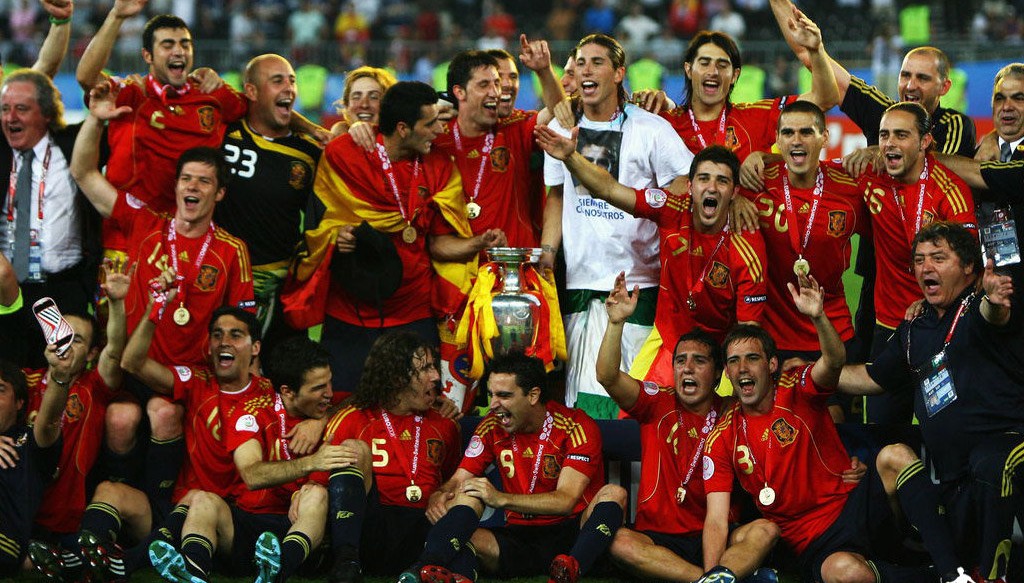
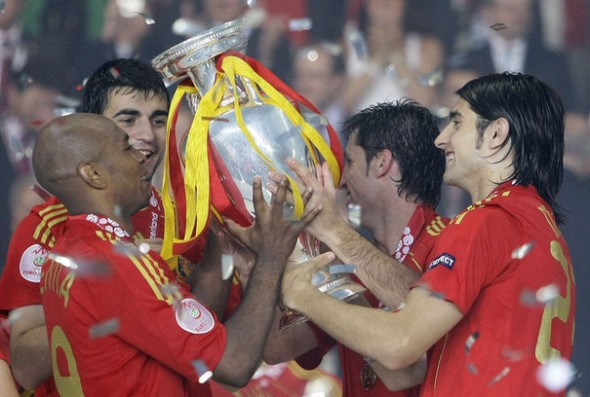 Reuters
Reuters
It was exactly four years ago today, in the Austrian city of Innsbruck, that Spain kicked off what was ultimately to prove their first victory in an international tournament for 44 years. They began Euro 2008 in a familiar position, ranked as third favourites behind Italy and Germany, and thus fancied by many as the dark horses for the title.
However at the end of an emphatic 4-1 victory against Russia, more and more people started to believe that this was finally going to be Spain’s year. Nineteen days later they had their answer, with Fernando Torres’ first half goal against the Germans in Vienna sealing a memorable triumph, although the performance itself was far from the heights which La Roja had reached on their road to glory.
The qualifying competition had again been negotiated as group winners, although it took until the penultimate game for their passage to Switzerland and Austria to be secured, courtesy of a 3-0 victory against Sweden. They also lost twice on their travels in what was a relatively weak group, most memorably for David Healy in Windsor Park, Belfast, where the young Irishman scored a hat trick to secure a 3-2 success. Ultimately this led to them being seeded in the third of the four pots, but having avoided both Holland and Italy when the draw was made, the stage was set for an unusually comfortable passage to the quarter finals as the winners of Group C.
However as had by now become traditional, a team coached by the vastly experienced Luis Aragonés kept their supporters on tenterhooks before eventually emerging with what was one of three 100% records in the group stages. It took until two minutes into injury time for David Villa to break Sweden’s stubborn resistance and secure a 2-1 victory, whilst although qualification had already been assured by the final game against Greece, the Spanish fans still had to wait until two minutes from the end for Dani Guiza to head home the winner against the holders.
There followed the defining moment of the tournament, with a tense encounter against an Italian side who had unexpectedly finished second, with just one win out of three, in Group C. It was far from a classic, with both sides seemingly paralysed by nerves and caution, and at the end of the 120 minutes the Spanish faced a fourth quarter final penalty shootout in a big tournament, having lost all of the previous three. However this time they prevailed, with Cesc Fabregas netting the winning spot kick, and an entire nation breathed a huge sigh of relief.
In order to make it to their first final since 1984, the Spain team had to see off the challenge of Russia for the second time in the tournament. They had outplayed them in Innsbruck, but since then the Russians had eliminated the much fancied Dutch, and promised to provide an altogether sterner test. However after a goalless first half, Xavi broke the deadlock five minutes into the second period, and Guiza came off the bench to double the lead before David Silva scored his first goal for Spain in a competitive fixture.
Faced with the absence through injury of the talismanic Villa, Aragonés decided to go with just Torres up front against the Germans in a 4-1-4-1 formation for the first time in the competition. However La Roja responded to this setback by completely outplaying their opponents, with Torres hitting the post and Sergio Ramos and Marcos Senna missing great opportunities to ease the nerves back home.
Ultimately it mattered not, and the hoodoo had finally been broken. More importantly for what was to follow, Spain had proved that ‘tiki taka’ football could be successful at the highest level, and were to go on to reemphasise the point two years later on the most glorious night of all in Spanish football history in Johannesburg.
Follow @icentrocampista

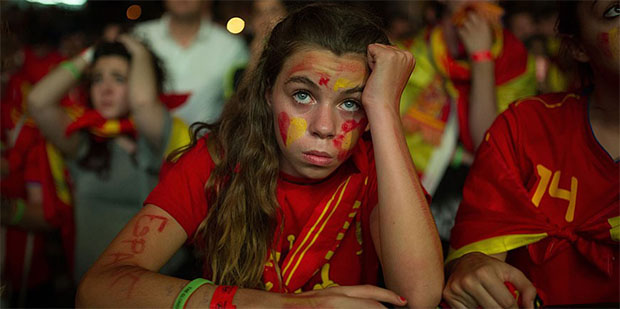
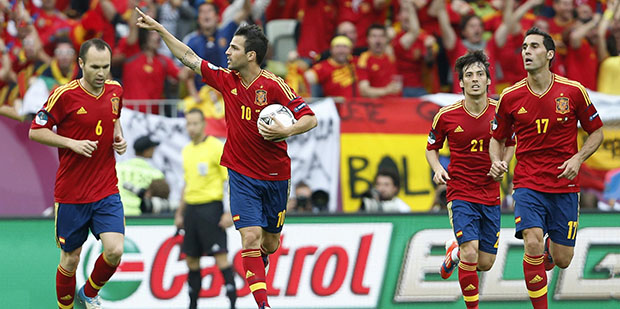
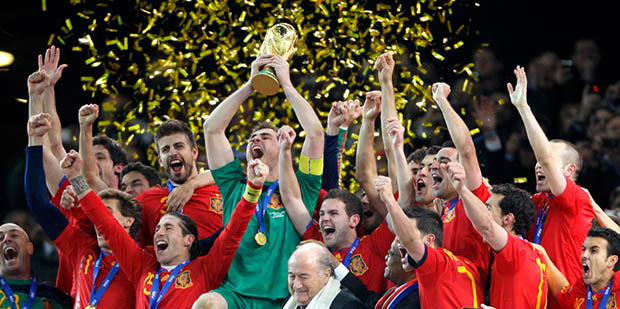


You must be logged in to post a comment Login